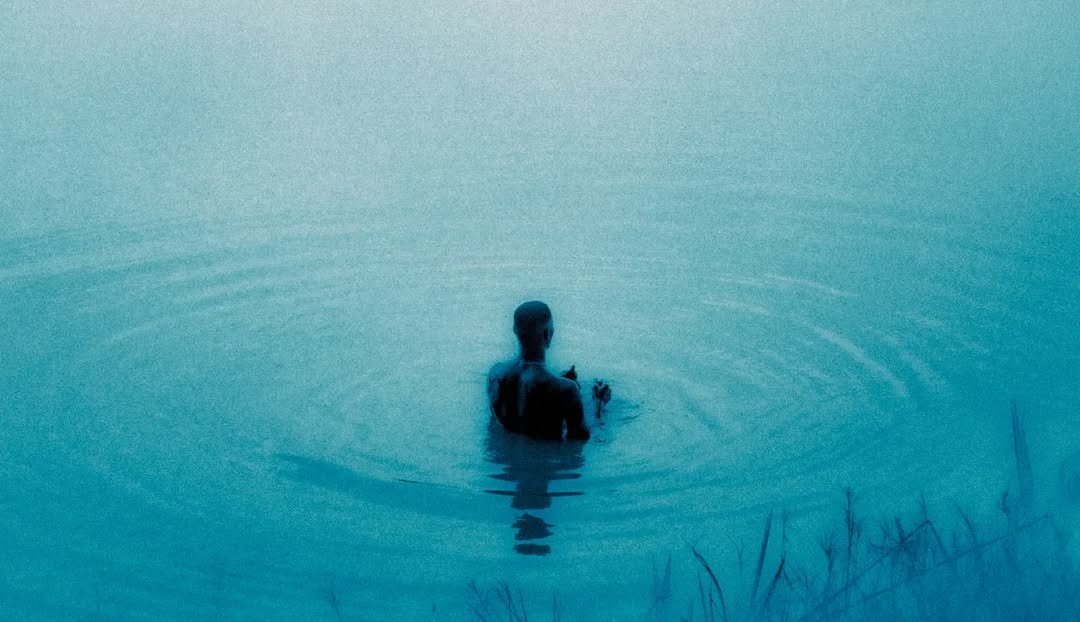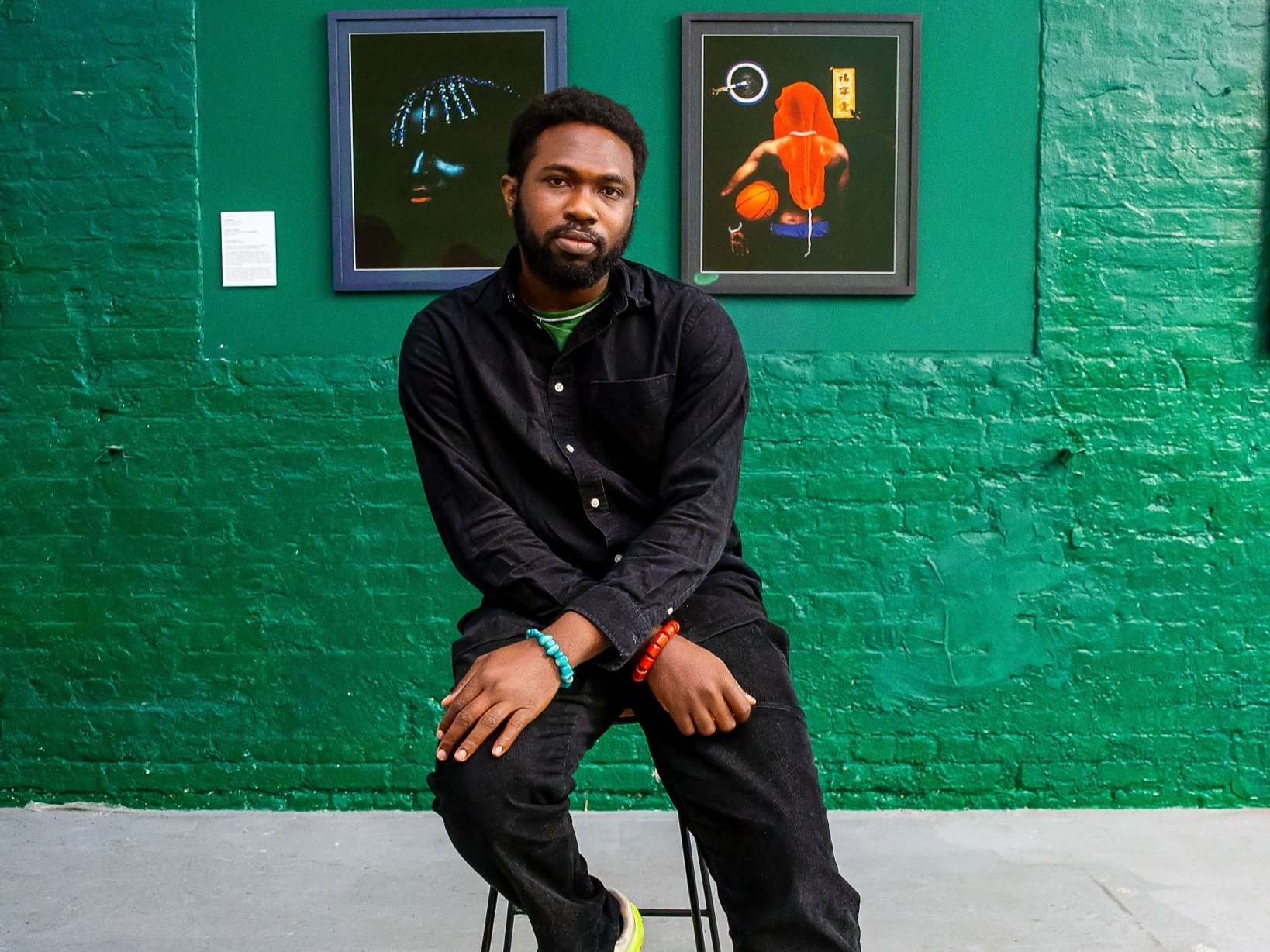In Conversation: Lucky Mamu UNU contemporary storyteller
Depth and introspection emerge from Lucky Mamu UNU cinematographic photography. The Effurun (Warri, Nigeria) native explores identity shift and exploration through his lenses often using sharp contrasts to merge individuality with the collective. A gentle invitation to explore the mysteries of the human soul.
Lucky Mamu UNU
In this interview, Lucky Mamu UNU opens the doors to the memories and inspirations that shape his signature photography. Now newly settled in the United Kingdom, he also reflects on the challenges of space and environment in his creative process.
Ngalula MAFWATA : How did your initial interest in photography evolve from capturing landscapes to focusing on people and identity?
Lucky Mamu UNU : Photography at the beginning for me was about capturing the beauty of the world around me. And once I became an active observer of the world around me, I realized my interest in the people around me, my friends really. I wanted to show the beautiful ways in which I saw them. I think my fascination with identity came about because growing up I was always conscious about how I looked, so when I had pictures of myself taken, I made them into this faceless silhouette where my face is obscured but everything else is pretty much visible. So I became fascinated with the idea of a silhouette where you capture the shape of a person instead of their usual portrait and have since built upon that to where my work currently is.
Ngalula MAFWATA : Can you walk us through the transition from being a prospective photographer to fully embracing it as your path? What have been the defining moments for you?
Lucky Mamu UNU : I stumbled upon photography in my second year studying a five-year engineering degree, and I fell in love with it. It allowed me to really and truly see and changed my entire world. It allowed me to step into myself as an active observer of the world rather than the passive observer I've always been. The defining point for me had to be when I started to infuse my poetry into my photography, and I felt the weight of being a storyteller. I started to read African fiction around the same time too, and at this point, I was already a part of my own little photography community on Instagram (Rachel Seidu and Tatchero), and I really couldn't see myself doing anything else. It was like finding who I wanted to be and embracing it because it was the only thing that felt real. Eventually, when I had validation from Alliance Française Lagos when they selected me to be a part of their young photographers exhibition in 2021, it was icing on a beautiful cake.
In another world, maybe
Ngalula MAFWATA : The African indigenous traditions you explore in your work are rich in culture. How do you balance tradition with modernity in your creative process?
Lucky Mamu UNU : Growing up in Effurun (Warri), Nigeria, a lot of my daily living involved a mixture of tradition and modernization. So to have that resurface in the work I make isn't really surprising. Also, there are so many layers of identity, both past and present, being unraveled in these traditions and cultures, which I now try to focus on in a bid to understand a past I never got to witness and a present I couldn't quite grasp how we got to.
Ngalula MAFWATA : You work a lot with high contrast and intensity in colors, with faces of your models being somehow hidden. Can you talk us through your process?
Lucky Mamu UNU : I actually find myself being drawn to contrast even when writing poetry. It's just one of those things that is a part of how I make sense of the world. For my pictures, I tend to use contrast and colours to highlight the important parts of the story by conscious use of both presence and absence. The process for this oscillates between meticulous planning and serendipitous moments of expression during post-production. I hide the faces of the models in some of my images to give space for other people to exist through them and to find themselves in the stories I tell. Removing the face allows for a lot more people to look past the individuality of it and see the collective identity that we share in different ways. It also works for me because most of my work is me trying to figure out “Who I am” through other people. It allows me to take other people on a journey of self-discovery but also an intersectional discovery of where we collide in our search for identity.
Ngalula MAFWATA : Location is crucial in your work. Having transitioned from Warri to Lagos and now the UK, how do you feel the environment and culture in each place have influenced your perspective on identity and storytelling through photography?
Lucky Mamu UNU : Being born and raised in Warri allowed me to understand a lot about my own heritage and culture because I went to different cultural festivals and was able to meet different people who participated and interacted in the culture in different ways. Also, the character of the city allows one to be very confrontational, which I believe my work is to some extent. Since moving to the UK, my identity here has shifted in a way I'm very conscious of and reminded of often. The way I made work at first also shifted in a way. I was unable to take new pictures for a while because everything was so different from the world I had been used to. I withdrew into the archives of works I'd taken across the years in Nigeria and made new collections of work from them as long as the images fit the vision of work I was trying to make. Being in the UK has also influenced the kind of stories I want to tell, where I feel more drawn to the elements I'm no longer in contact with—regards to home, memory, spirituality, and culture.
“Removing the face allows for a lot more people to look past the individuality of it and see the collective identity that we share in different ways. It also works for me because most of my work is me trying to figure out “Who I am” through other people.”
The Social Contract
Who gets to be me? series
Ngalula MAFWATA : How do you personally define "home," and how does it appear in your photography, particularly in works like Portrait of My Grandmother and Social Contract?
Lucky Mamu UNU : Home for me is a scene of familiarity, nostalgia, and peace.
Ngalula MAFWATA : Your series Who Gets to Be Me? touches on the dilemma of being an artist versus a nine-to-five worker. Do you see your work as a form of resistance or commentary on modern societal pressures of success?
Lucky Mamu UNU : My identity as an artist after spending eight years in university studying engineering says a lot about this, I believe. The work is largely a commentary on the system because I'm asking questions and opening space for dialogue within it. I'm exploring different possibilities and realities of what the system demands of us and how we choose to conform or not. My choosing to be an artist is my resistance.


Ngalula MAFWATA : Your creative process includes researching, staging, and experimenting. Could you share more about the research phase? How do you approach it, and how do you make sure your work resonates with both personal and universal experiences?
Lucky Mamu UNU : The research phase of my work typically involves having first conversations about the topic I'm working on with my friends and retreating into myself to find exactly where I fit in. After that, I search for materials and outfits that are symbolic of the idea because symbolism is a core aspect of my work. That’s what I use to weave together the personal and the universal experiences. While we can sometimes interact with visual markers and symbols differently, I consider my own interpretation first and foremost. I love to see when other people either have the same interpretation or a different one because it influences how they view the work.
Ngalula MAFWATA : What questions fuel your mind and creativity these days?
Lucky Mamu UNU : Two questions that linger on my mind these days are: “What is home?” and “What is my history?” I've been doing a lot of research into where I come from (Urhobo tribe)—what myths, cosmology, art, history, and philosophies the people who came before me had. How did they live before Western influences, and how did they interact with colonization? I'm now also very invested in making a new generation of Urhobo art and having conversations around it.
Ngalula MAFWATA : There’s a surge in Black representation in photography through the Afro-diasporic lens. What legacy would you like to leave through your work—even if this is early to say?
Lucky Mamu UNU : I've never really thought about this before, but I'd like people of Afro-diasporic heritage to find me and themselves in the work and worlds I create.







Find more about Lucky Mamu UNU on his personal spaces.






